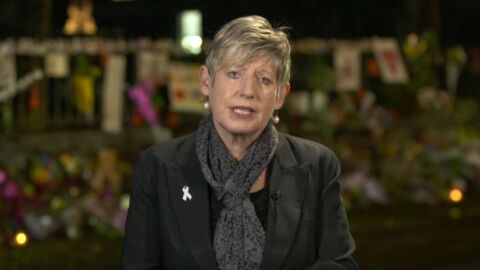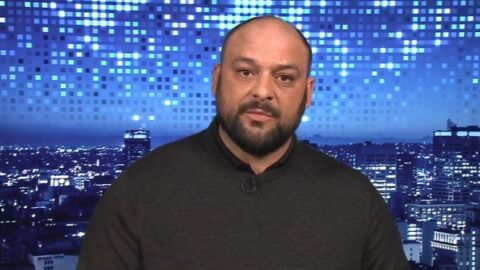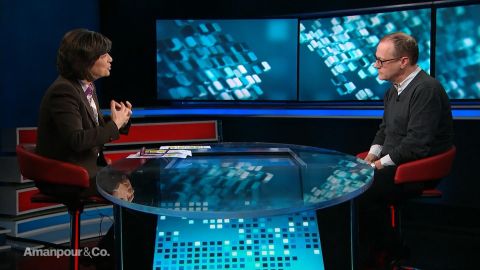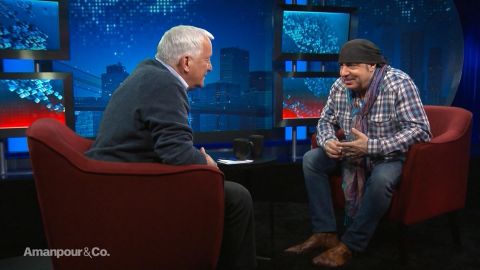Read Transcript EXPAND
CHRISTIANE AMANPOUR: Just tell us a little bit, then, because it’s really important to have you to talk to us today to try and understand what happened, if there is any understanding, but to understand from you perhaps through your story, what led you into that world and how you got out of that world? Why did you become a neo-Nazi, for instance?
CHRISTIAN PICCIOLINI, AUTHOR, “WHITE AMERICAN YOUTH”: Well, that’s a really important question, and I think one that most people don’t have a grasp on. And what I can tell people is — the hundreds of people I have worked with, including myself at 14 years old in 1987 when I was recruited — ideology was simply the outlet. It was simply the last element that had to fall in place to enact that type of violence, to go down that path, because our pre-radicalization happened because of trauma, because of abuse, because of alienation, or loneliness, or social awkwardness. And that is the same story that every person I’ve ever worked with has had. The ideology then becomes a suit of armor, it gives us a reason then to blame somebody else for the pain. So I think if we want to combat this, we have to approach it much like Dr. Jonas Salk with polio; we have to treat the sick — the ones who are afflicted with this — but we also have to inoculate the population from getting sick. And we do that by acknowledging that a threat exists. And currently, we’re not doing that. Frankly, every administration that the United States has ever had has never focused on domestic extremism. This is the first administration I’ve seen actually inflame those types of ideas.
AMANPOUR: Well, let’s take a little bit of that at a time. You talk about inoculating, you know, Jonas Salk and polio — this is the severalth time, if I can put it that way, that I’m hearing some of these mass traumas, shootings, terrorism, these kinds of things be described as epidemics and contagions. I wonder — is that correct? Do you feel that, that it’s an epidemic and you have to deal with it? And if so, how do you deal with it in that case?
PICCIOLINI: So, my pre-radicalization theory applies to our state of affairs right now. On our life’s journey, we hit pothotles, and those are the traumas, the pains. And those deviate us, but we’re searching for identity, community and purpose — especially young people, when they’re first breaking away from the influence of family. Now, if they can’t find that in real life, the Internet is playing a major role here, because they’re able to find their identity, community and purpose online. And there are millions of young people who may feel alienated, who may be marginalized, who might be bullied, who are then finding acceptance in these groups. And frankly, Christiane, it’s the fastest growing underground social movement I’ve ever seen in my lifetime.
About This Episode EXPAND
Christiane Amanpour speaks with Lianne Dalziel, the Mayor of Christchurch, New Zealand, about gun reform; Christian Picciolini, a former Neo-Nazi, about how terrorists become radicalized; and Henry Singer, a filmmaker, about the Bosnian genocide. Walter Isaacson speaks with actor/musician Stevie Van Zandt about his career.
LEARN MORE



